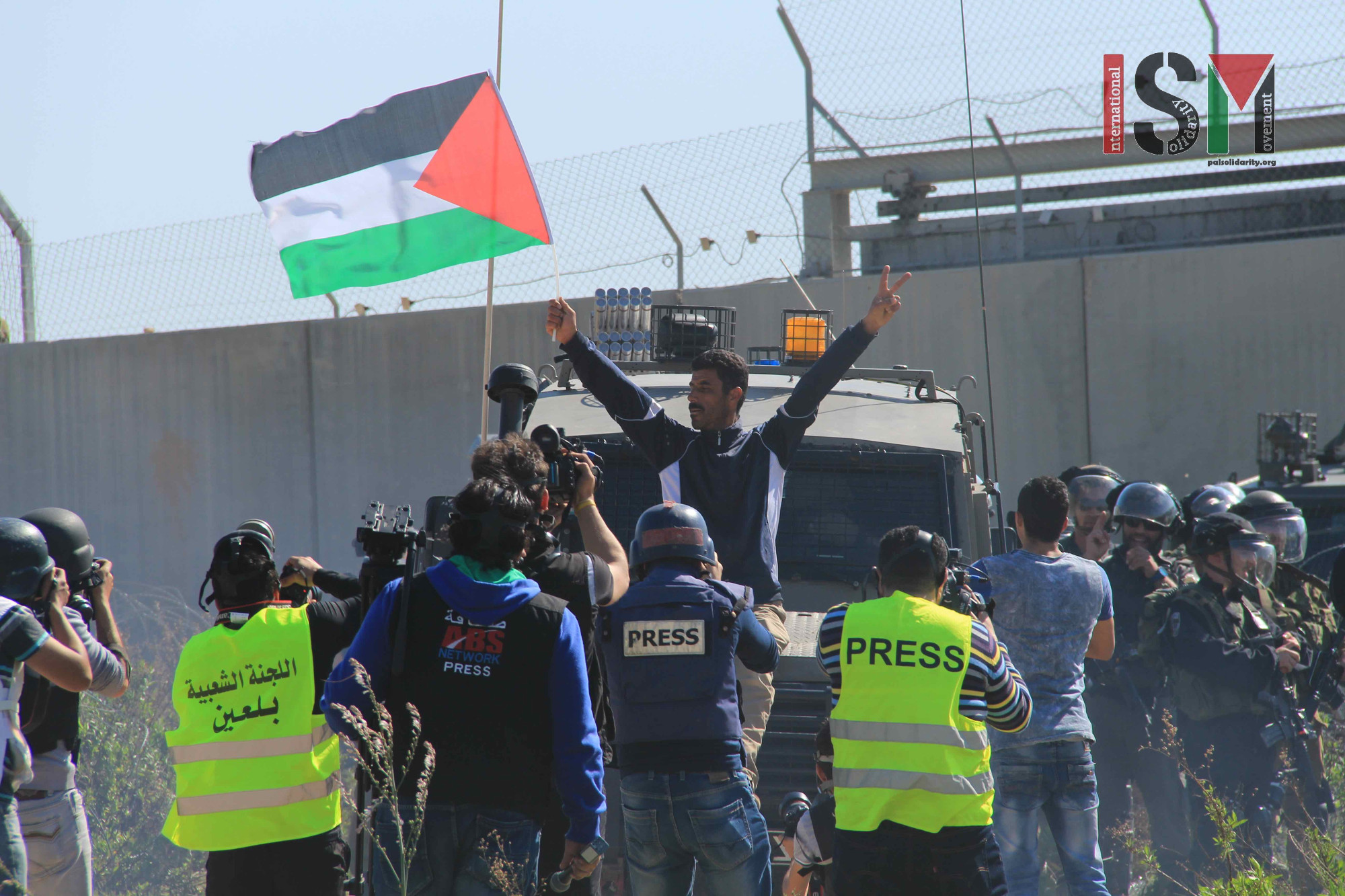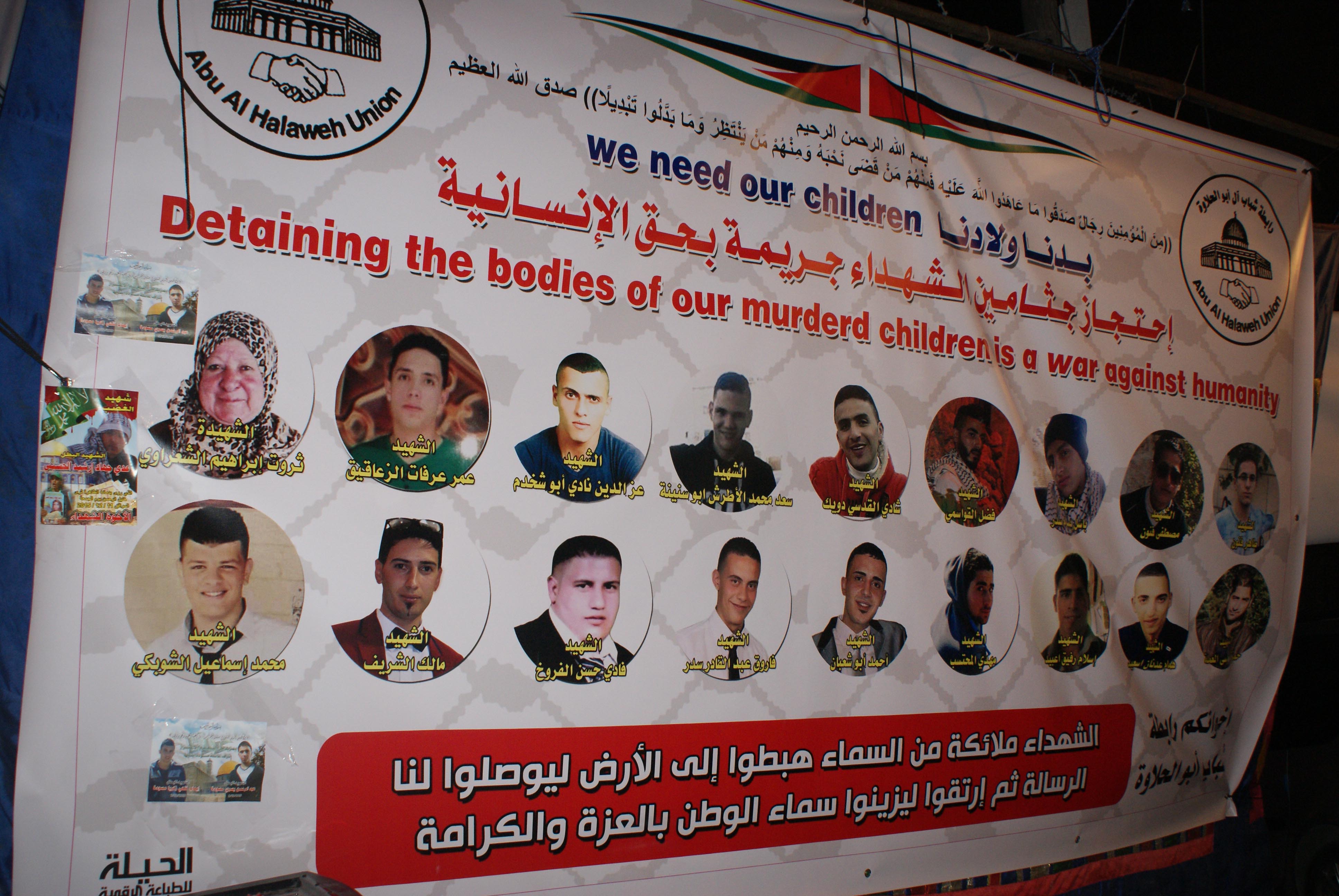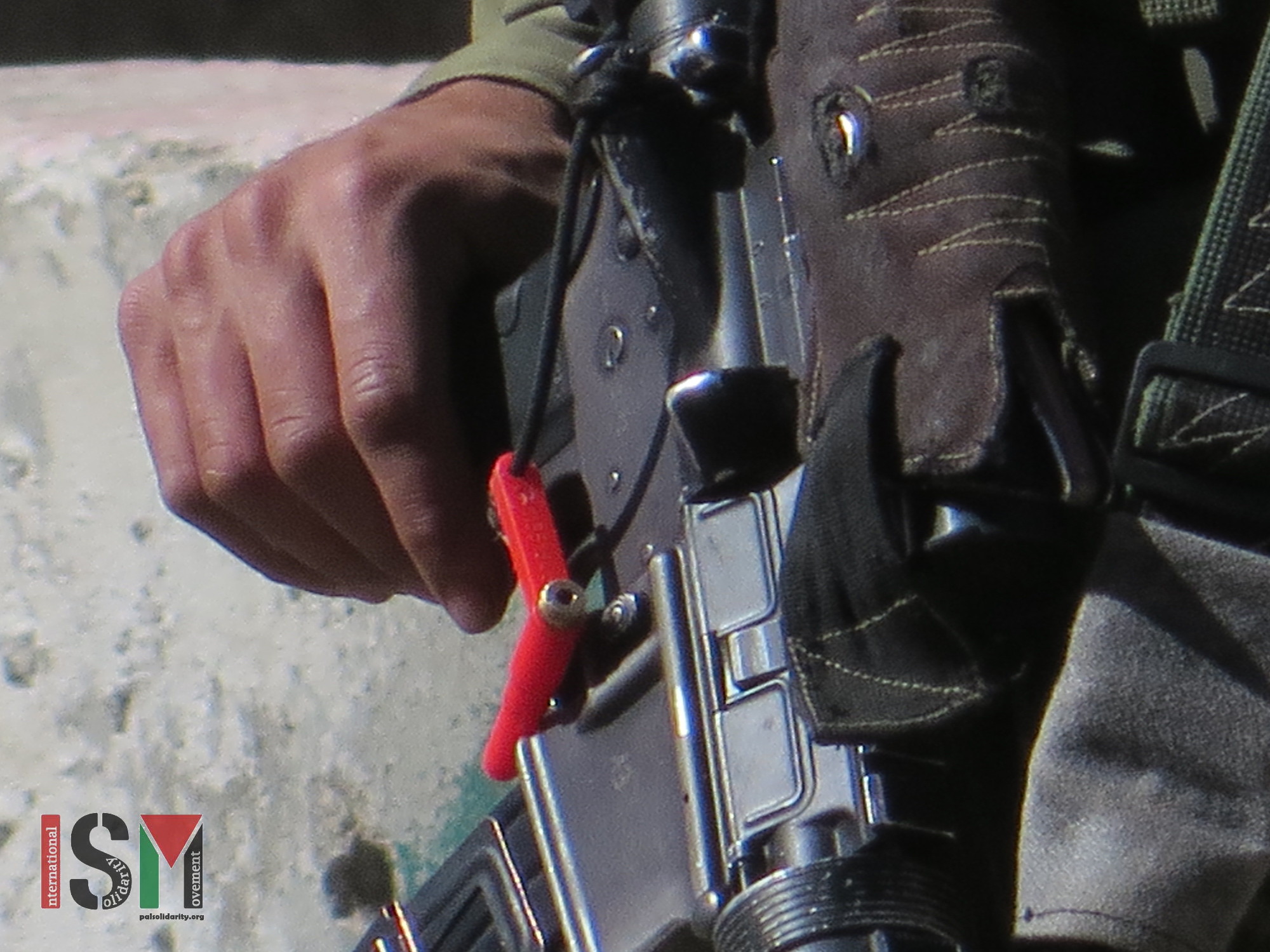Category: Features
-
11th annual Bil’in demonstrations see protestors confront Israeli military at the apartheid wall
20th February 2015 | International Solidarity Movement, Al-Khalil team | Bi’lin, occupied Palestine On Friday the 20th of February, protesters took to the streets of Bil’in for the 11th consecutive year to demonstrate against the apartheid wall. Palestinians and international activists came together in solidarity to unite against the annexation wall which provides shelter for…
-
Video: Willful Killing
20th February 2016| ProPal | Occupied Palestine This video produced by ProPal shows examples of Israel’s ongoing policy of executing Palestinians and how Israeli politicians instruct and encourage Israeli forces to shoot to kill any Palestinian suspect.
-
Palestinians aggressively harassed by Israeli forces on their way to prayer
19th February 2016 | International Solidarity Movement, al-Khalil team | Hebron, occupied Palestine On 19th February 2016, as Palestinians were on their way to the Friday prayer in Ibrahimi Mosque in occupied al-Khalil (Hebron), Israeli forces stopped, delayed, body-searched and harassed them. Like every Friday, Palestinian men, women and children made their way through the…



